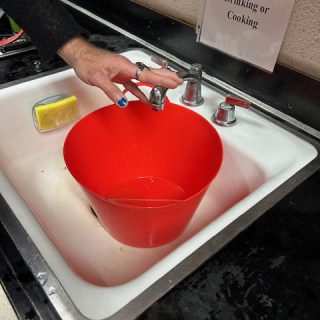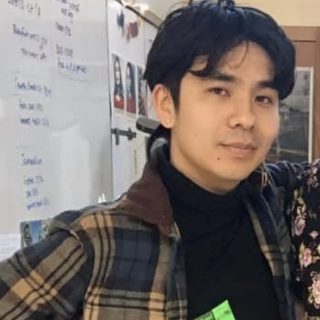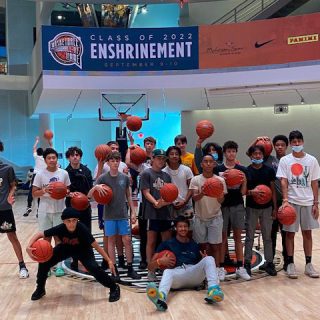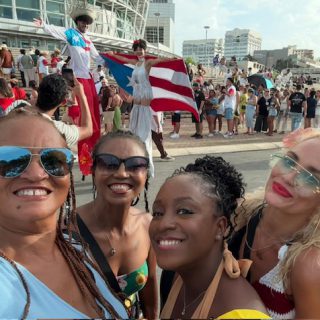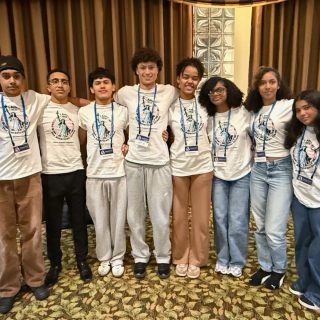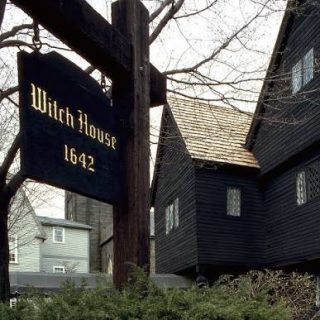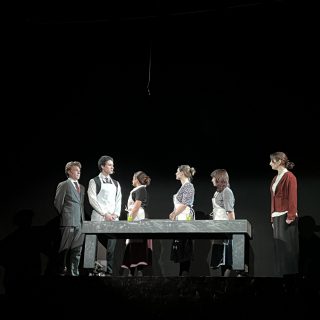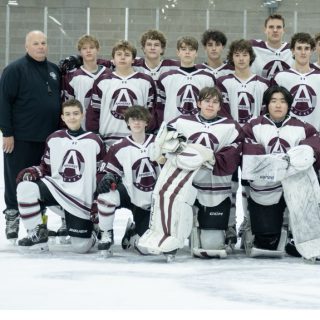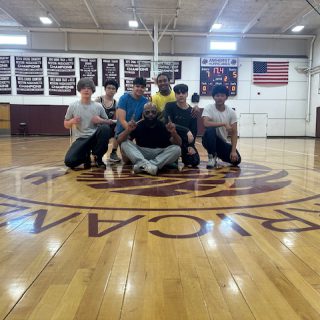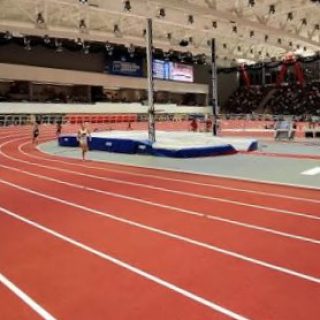Rocketry Club launch successful
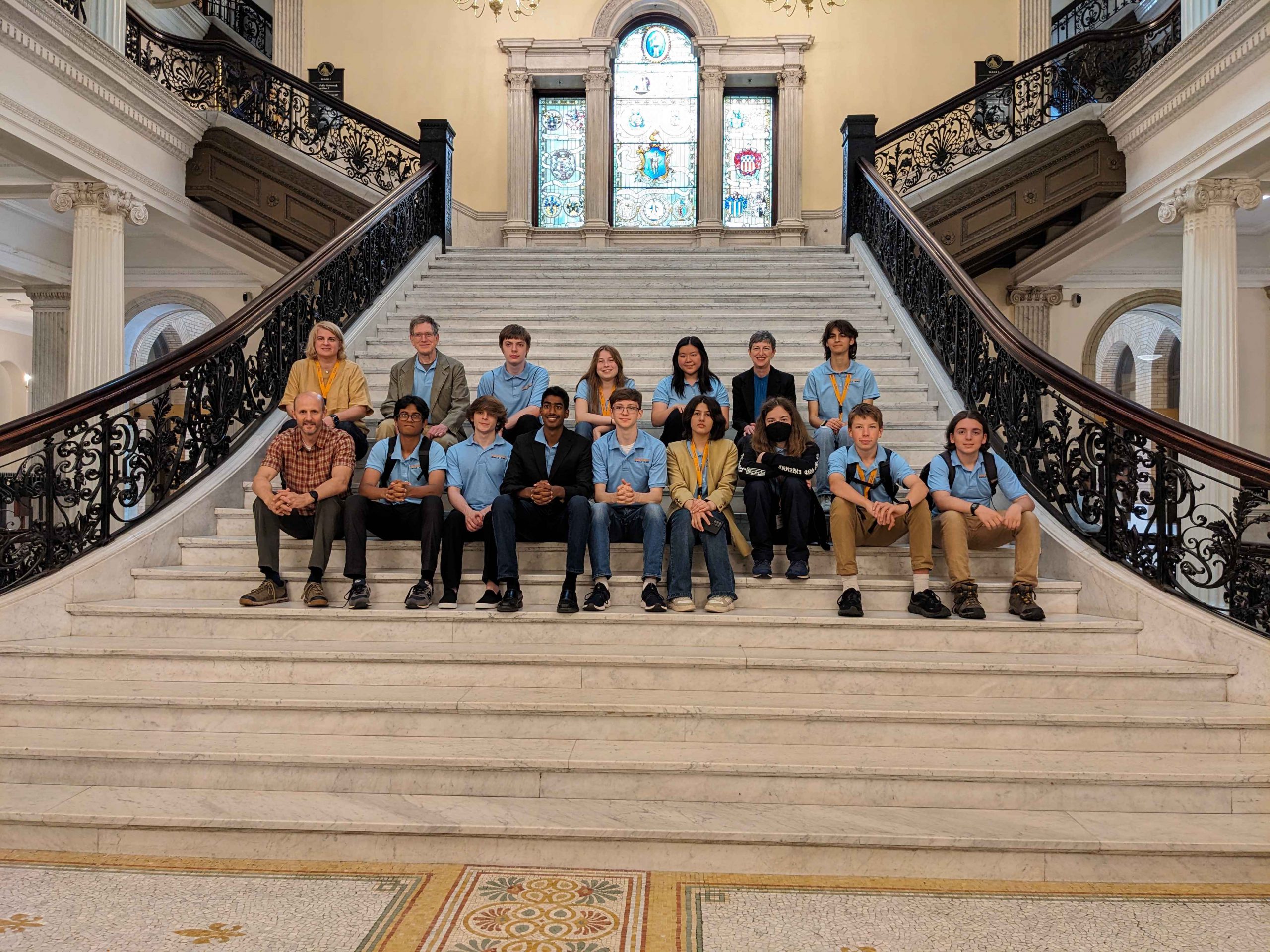
ARHS junior Yatharth Rajakumar is the leader of the school’s new Rocketry Team, a club whose goal is to design and build a rocket to launch, seeing where they stack up against other teams across the U.S. “Our goal is Nationals in D.C., [to show] that our school can compete at the highest level,” he said.
What is now the Rocketry Team actually began as the ARHS InvenTeam. “We worked on a smart garment called SARAH (Search and Rescue Assistance Hardware) that could be worn by firefighters in the field,” said Rajakumar. “It transmitted vital signs and location to a command desk to monitor firefighter health and safety.”
Through their experience as the ARHS InvenTeam, Rajakumar and his fellow clubmates were taught many lessons that have come to benefit the Rocketry Team. “We learned discipline, teamwork, and the value of having fun. These are the lessons that now serve as the foundation for Hurricanes Rocketry.”
The Rocketry Team meets after school every Tuesday at 3:35-5 p.m. in advisor and Physics and Engineering teacher John Fabel’s room, which doubles as a workshop.
The team first decided to participate in the American Rocketry Challenge (ARC) last year.
The team is very open to new members and allows everyone a chance to partake in its mission. “Anyone who has an interest in Rocketry, Aerospace Engineering, or STEM in general [can join]! There are also numerous aspects of project management, fundraising, and communication that may encourage people to join,” reads a club announcement. “We want this to be a space where anyone can find a way to contribute. No prior experience is required to participate.”
It could be assumed that a hands-on team like this would require constant guidance from an adult, but that is anything but the case for the Rocketry Team. Fabel thinks of himself as more of a mentor than a guide. “I’m more in the background,” he said. “Clubs are a place where students can follow their passions” and be the ones “directing things.”
Still, Fabel does provide helpful guidance. “I really appreciate being able to work with [them] on projects and challenges; it’s very fulfilling as a teacher.”
One thing that serves as a major obstacle for the team is the school’s new schedule, which has removed the choice-based flex blocks.
This means students must go to their A, B, advisory, C, or D period teachers during the 2:55 to 3:35 p.m. time, and may not choose to spend it on projects of interest, even ones of great academic value. “[The] previous flex block structure made it a lot easier for clubs and teams like this to meet during the school day,” Fabel said. “[Being] able to learn from challenging projects is important to their education.”
Fabel expressed his enjoyment for the Rocketry Team in part because of his ability to share a part of his childhood with students. “[It’s] interesting for me because I designed and launched rockets in high school,” he said.
But there is one objective which overshadows all else. “The overall goal is to really engage in challenges that are fun and satisfying,” Fabel said.
He is excited for the club to eventually build and launch a prototype of the type of rocket that will compete in the ARC challenge. It will take “a larger and more powerful one [than what we are currently working with],” he said. “It’s not a trivial challenge.”

